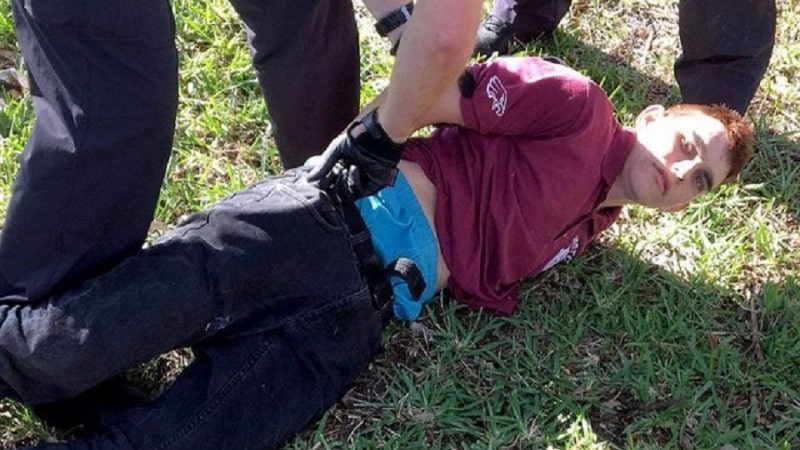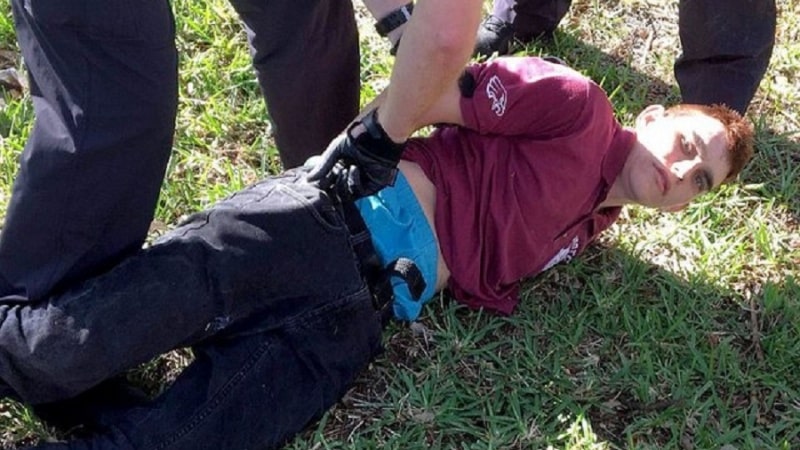In the aftermath of yet another mass shooting in the United States, the internet and broadcast news alike are inundated with commentary about why this keeps happening in America. Some blame guns, others blame mental health, and still others confidently blame false flag events and crisis actors.
But one commonality among numerous mass killings in the United States remains absent from these conversations. It is always reported when details of the shooter are published, but the widespread connection is rarely acknowledged: A mounting number of mass shooters have ties to the military, including Nikolas Cruz, who was a member of his school’s military prep organization, JROTC (Army Junior Reserve Officer Training Corps).
The United States has indulged in a culture of ‘patriotic’ militarism for decades, glorifying this institutionalized violence as a sign of strength and morality. As Anti-Media observed last week shortly after the Florida shooting, “We memorialize those who commit violence for the government and hold them in the highest esteem — throwing tantrums when others express dissenting opinions or fail to bow to the people who serve these institutions.”
Indeed, this glorification of violence bleeds over into the United States’ unique problem of individuals committing acts of mass violence. Here is a brief sampling of perpetrators of some of the most high-profile mass shootings in recent years. Many were either members of the military at some point, were rejected by the military (but clearly wanted to join), or came from a military family:
– Chris Harper Mercer, who shot up a school in Oregon, was kicked out of the army and often wore military fatigue pants as a regular outfit. He was described as “militant.”
– The Navy Yard shooter, Aaron Alexis, was a Navy reservist before he became a contractor and conducted his rampage on military grounds.
– Nidal Hassan, the Fort Hood shooter, was a psychiatrist in the military and committed his shooting on military grounds.
– Wade Michael Page, who opened fire on a Sikh temple, was kicked out of the military.
– Devin Patrick Kelly, who killed 26 people in a chapel in Texas last year, was also kicked out of the military.
– Esteban Santiago-Ruiz, who shot up the Ft. Lauderdale airport, was a member of the National Guard.
– Chris Dorner, who notoriously began murdering police officers over deeply-rooted frustrations over racism and injustice within the Los Angeles Police Department, was a Marine before he became a cop.
– Micah Javier Johnson, who went on a cop-killing spree in Dallas in 2016, was a member of the Army Reserves and fought in Afghanistan.
– At least one member of a foiled plot to blow up a mosque in Kansas had served in the military and then continued in the National Guard.
– Eric Frein, who ambushed Pennsylvania state troopers in 2014, came from a military family, reenacted military battles, and carried military gear and camouflage face paint. Police found an Army sniper handbook in his bedroom.
– One of the infamous Columbine High School shooters, Eric Harris, came from a military family and was rejected by the Marines over his use of antidepressants.
– Other shooters, like Paul Ciancia, Adam Lanza, and James Holmes showed up to their shootings donning battle gear, and while this does not implicate a direct tie to the military, their decision to show up to a massacre of innocent people in tactical outfits (most commonly associated with the military and police) arguably demonstrates their mentality: one of battle, which is constantly glorified in American culture. Unsurprisingly, Cruz wore his JROTC shirt to shoot up Marjory Stoneman Douglas High School.
None of this is to claim that simply being a member of or supporting the military creates mass shooters (although admittedly, many members of the military are mass shooters, they just kill innocent foreigners abroad rather than those in the U.S.).
However, it is to say that the military is an inherently violent institution, and it should come as no surprise that individuals drawn to violent institutions believe using violence is acceptable.
As journalist Justin King wrote in a piece highlighting the experience of an average American teenage boy and how much violence pervades the fabric of our culture:
In homeroom, they watch the news. A bunch of brown kids in some far away land have been ripped in half by warheads from a drone. Oops. Just collateral damage. Life is cheap. He’ll watch the live footage of the dead kids as detached as any trained killer. He knows we’re ready to go to war in Syria and knows we should kill them, but neither he nor his parents could tell you why.
Despite outrage from many Americans over the consistent stream of mass shootings, a tiny fraction of the population makes so much as a peep about the relentless destruction of innocent life abroad — destruction they pay for and that seeps back into American society. This is no more evident than in the repeated tendency of mass shooters to revere or participate in the military machine (though some corners of the internet claim these events are “false flags,” the reality remains that even if that were the case, those “selected” to perpetrate them are still drawn to the characteristically violent military).
While an inability to contain anger and mental health problems and the use of psychiatric drugs are certainly linked to horrific violence the difference between this phenomenon and that of military connections among shooters is simple: taking antidepressants is not inherently violent, and those who take them are not inherently endorsing a violent activity. The military, on the other hand, is intrinsically violent and would cease to exist without the “moral” authority to use this violence.
As Americans continue to rage at each other over solutions to gun violence, some insisting the government confiscate guns and others insisting the government ramp up the militarization of schools, it is clear that nothing will change until the American people confront the deeply-rooted foundation of violent militarism that continues to plague the United States and the world.
Reprinted with permission from TheAntiMedia.org.


